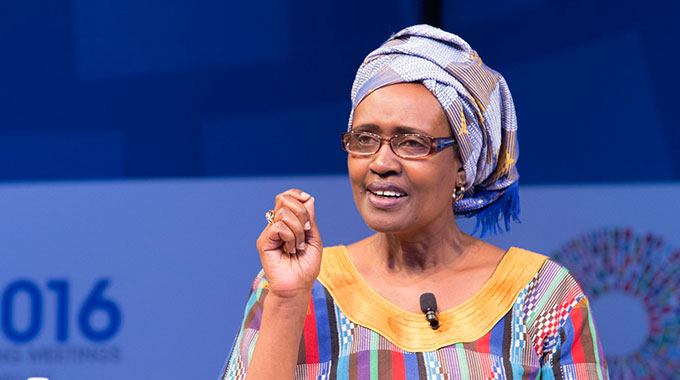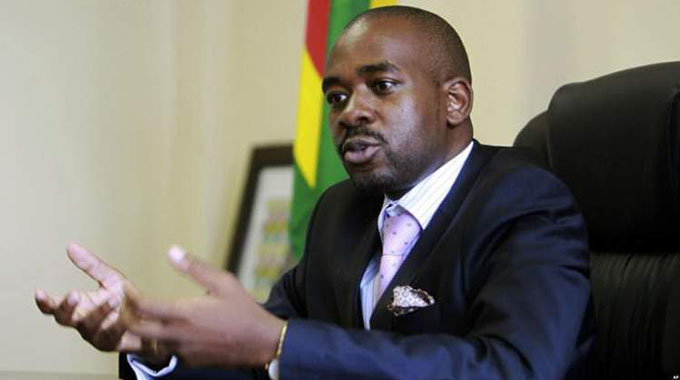Letters to the Editor: Youth-led development is Africa’s best shot at sustainable growth

Victoria Aloowo
I AM among the hundreds of delegates attending the Sixth Africa Regional Forum on Sustainable Development, which is being held in Zimbabwe’s beautiful resort town of Victoria Falls from 24 to 27 February.
It is my first time in Zimbabwe and like my country Uganda, it is beautiful here.
The theme of the conference, “2020-2030 A decade to deliver a transformed and prosperous Africa through the 2030 Agenda and Agenda 2063” is most timely.
Agenda 2063 and 2030 most likely sound vague to most young people my age but the objectives of these two initiatives mean the most to my generation.
The Sustainable Development Goals (SDGs), whose deadline is 2030, form the “blueprint to achieve a better and more sustainable world for us all” — a world in which we are the majority by eliminating miseries such as poverty and disease.
Agenda 2063, one may say, is a continental dream within a global dream. Driven by the African Union, the agenda underlines our aspirations for the future and identifies key actions that must be taken to boost the continent’s economic growth and development to foster rapid but sustainable transformation.
Therefore, the ARFSD is not just another conference or a stage for speakers to showcase their great oratory skills, but is and should be an opportunity to put forward achievable actions to lead us to those two big dreams.
I am from Uganda, a country with one of the youngest populations on the continent; for me, the opportunity to participate in this conversation is priceless.
This conference will hopefully be a continuation of the good momentum with which young activists began the year 2020, making the bold statement that, we want to be at the table not on the menu, of global decision making.
Three incidents in January particularly made me proud of fellow young activists who attended the World Economic Forum in Davos.
First was the performance of young Natasha Wang Mwansa from Zambia who spoke as a panelist at the WEF alongside world leaders including UNAIDS Executive Director Winnie Byanyima.
Natasha said: “In 20 years, you (current leaders) won’t be in power. I will be in power so it’s important that you listen to what we have to say, now.” For me, that was the mark of youth power and brave brilliance of a young person.
Then there was my countrymate Vanessa Nakate’s media storm after she stood up for her right to be seen and associate when she was cropped out of a picture with fellow activists including Luisa Neubauer, Greta Thunberg, Isabelle Axelsson and Loukina Tille while in Davos.
Vanessa’s bravery helped send out a global statement that young people, regardless of background or race, ‘can no-longer be cropped out of important global conversations.’
Then there was the launch of Restless Development’s “Youth Power Panel” of 12 young activists from 12 countries who will over the next few months, lead a global campaign to drive awareness and inspire action to help achieve Global Goals.
Efforts by organisations such as Restless Development, Project Everyone, UNICEF and others that put young people at the vanguard of global agendas, inspire me a lot.
Here in Zimbabwe, I and other colleagues will be carrying the banner for youth leadership as well as engage leaders with our stand that Africa’s best shot at achieving the Global Goals and Sustainability is in us, young people.
Like Natasha Wang Mwansa said in Davos, long after the older generation is gone, the younger generation will be here to face the consequences of unhealthy decisions being taken today, too often without our input.
A fortnight ago, I read the newly released African Development Bank’s 2020 Economic Outlook, “Developing Africa’s Workforce for the Future”. It has a number of talking points that I hope will surface at the ARFSD conference.
For instance, the economic outlook noted that “under business-as-usual scenarios, many countries in Africa will not achieve the Sustainable Development Goal of eradicating extreme poverty (reducing it to three percent by 2030).”
“Business as usual approaches” have led to further inequality, with the outlook noting that despite Africa’s solid growth performance, only about a third of countries achieved growth that helped reduce both poverty and inequality.
What must be done?
The AfDB economic outlook is rightly themed on the need to address the ‘high prevalence of skill and education mismatches among young people’ which is where I believe both the problem and solution, lie.
There is the obviously urgent need to end the so-called “business as usual” approaches and embark on “an alternative development model” that places young people at the centre of leading progress in their own communities.
Here in Africa, the youth sit at the nexus of development and sustainability because the continent has the youngest population in the world with at least 70 percent of its 1.2 billion people aged between 18 and 35 years.
While that presents an opportunity for a high demographic dividend, business as usual approaches to development will not help Africa and I hope that in Zimbabwe, development actors will finally wake up to smell the coffee.
– Victoria Aloowo is a 23-year-old Youth Volunteer with Restless Development Uganda. She can be contacted via email: [email protected] or LinkedIn: Victoria Aloowo.











Comments